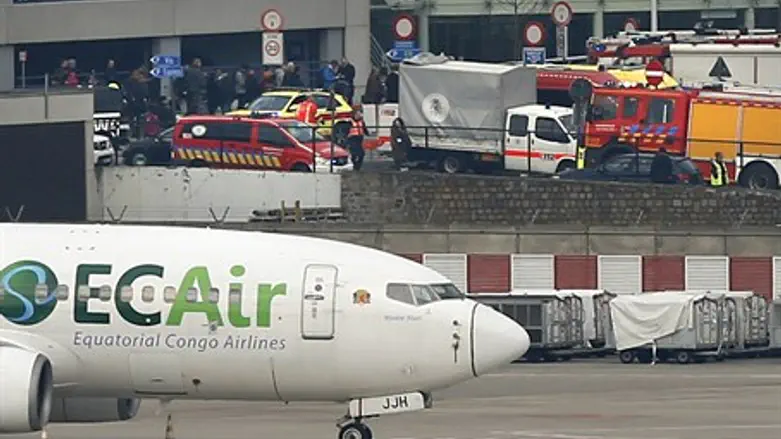
With European Jewry on edge after a series of terror attacks that have rocked the continent, one of the victims personifies a growing trend among Jews in Europe.
Walter Benjamin, who was seriously wounded in last week’s twin suicide bombings at the Zaventem airport in Brussels, has decided his future belongs in Israel, and is planning to move there as soon as he is physically able.
Aliyah, which was in decline for years after peaking in the early 1990s, is on the rise once again, driven largely by fears of terrorism and growing anti-Semitism in Europe.
After a flood of immigration from the former Soviet Union after the fall of the Berlin Wall in 1989, Aliyah levels remained high throughout the 1990s. But with the beginning of the Second Intifada in 2000, however, immigration slowed, dropping from an annual average of more than 60,000 per year between 1997 and 2000, to just over 16,000 per year between 2010 and 2013.
Immigration inched upwards in 2014, in part due to a dramatic rise in European anti-Semitism.
That trend continued, with Aliyah topping 33,000 in 2015, the highest number since 2001. Even before the tragic series of terrorist bombings in Belgium, the Jewish Agency predicted further increases in immigration, primarily from Europe.
Lost in the numbers, however, is the human element of the story.
Benjamin was wounded in the Brussels bombings while waiting in the Zaventem airport lounge ahead of a flight to Israel. He had planned to spend Purim there with his daughter.
When the bombs went off in the airport waiting area, Benjamin’s large suitcase partially shielded him from the blast, likely saving his life. But he was still severely injured by flying pieces of shrapnel, and lost his right leg.
While recovering from the horrifying experience, spoke with Channel 2 from his hospital bed. Along with recounting the frightening moments before and during the attack, Benjamin reflected a growing sentiment among Western European Jews – the desire to leave.
Benjamin made it clear that after the attack, Aliyah was very much on his mind, telling Channel 2 that the very first thing he planned to do once he is released from the hospital is to move to Israel.
Like many European Jews, Benjamin’s sense of security in his home country has evaporated. He remarked that despite the attacks in Brussels, Belgium was unlikely to take terrorism seriously.
“Honestly, I don’t think anything will change. There still is no security and the authorities don’t have a clue [about terrorism]. At least now after the attack you can understand how Israeli’s feel when there’s a terror attack.”
For tens of thousands of European Jews, it’s that increasing lack of security that’s prompting them to consider immigrating to Israel, particularly after terror attacks singling out Jewish targets, like the January 2015 attack on a kosher supermarket near Paris, the February 2015 shooting attack at a Denmark synagogue, or the terror attack at a Jewish museum in Belgium.
